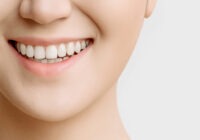
Sleep. It’s one of the essential needs in life, along with food, water, and fresh air. In fact, The National Sleep Foundation says that healthy adults need between seven and nine hours of uninterrupted sleep each night to function adequately.
Unfortunately, for millions of people around the world, sleep is hard to come by. Whether it’s insomnia, stress, or sleep apnea, sleep disruptions can cause more than just tiredness during the day. They can affect every aspect of your life, from cognitive abilities to many serious diseases.
Sleep also helps us heal and can improve everything from the immune system to our blood vessels.
Sleeping seven to nine hours each night allows your body to complete all four stages of the sleep cycle, which are
Non- REM Sleep N1
Non-REM sleep is the first stage of sleep, which happens at the beginning of your sleep cycle, after you have first fallen asleep. This stage only lasts a few minutes, during which your heart rate decreases and your muscles relax.
Non REM Sleep N2
The Non REM sleep N2 stage lasts about 25 minutes. During this stage your heart rate and breathing slow further, and your body temperature drops. There is no eye movement during this stage, and “sleep spindles” are generated by your brain. Sleep spindles control some of our sleep functions such as cortical development and memory consolidation.
Non REM Sleep N3
During Non Rem sleep N3, your body is in its deepest sleep state. This is the stage where tissue repair, cell generation, and the boosting of the immune system occurs.
REM Sleep
REM Sleep is the stage where you dream. During this stage, your muscles will tense, your heart rate will increase, and your eye movements will become rapid, hence the name REM, which stands for “rapid eye movement.”
Without completing these four stages, your body will not function properly. This can result in an increase in things like depression and anxiety, and it can even affect everything from hypertension to diabetes and Alzheimer’s Disease.
Thankfully, there are solutions to help you sleep and improve your overall health both while sleeping and while awake. For sleep apnea patients, Dr. Abelar offers orthotic sleep device options that can position the airway open, allowing you to take in more breath and continue sleeping properly.
These devices are more comfortable than CPAP therapy, and are custom fit to your individual mouth. They are easy to care for, and don’t require forced air, electricity, or complicated machinery.
To learn more about your sleep apnea options, please contact Dr. Abelar today.






